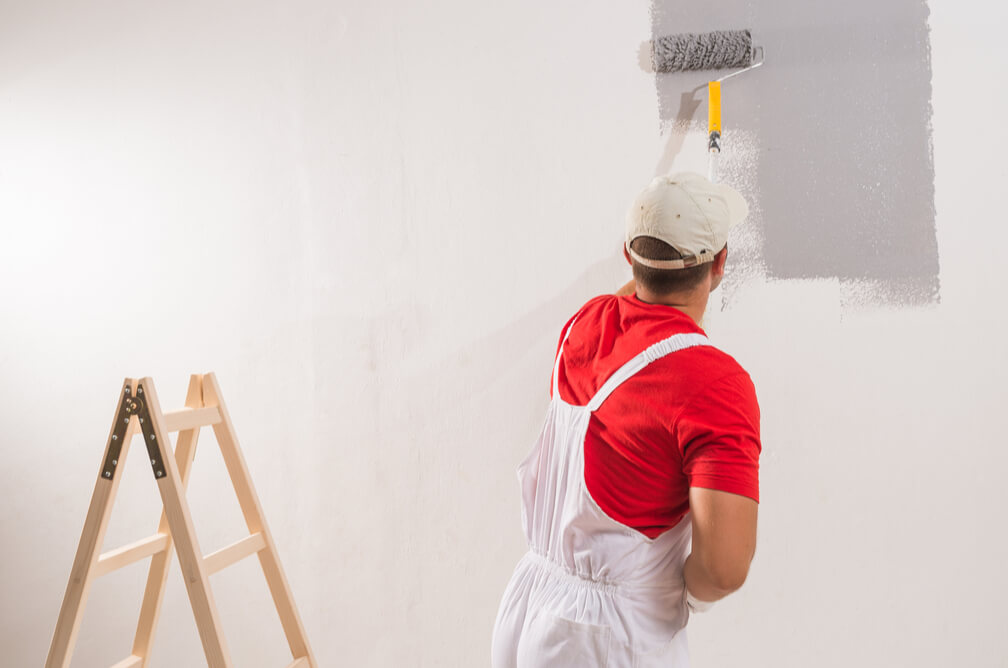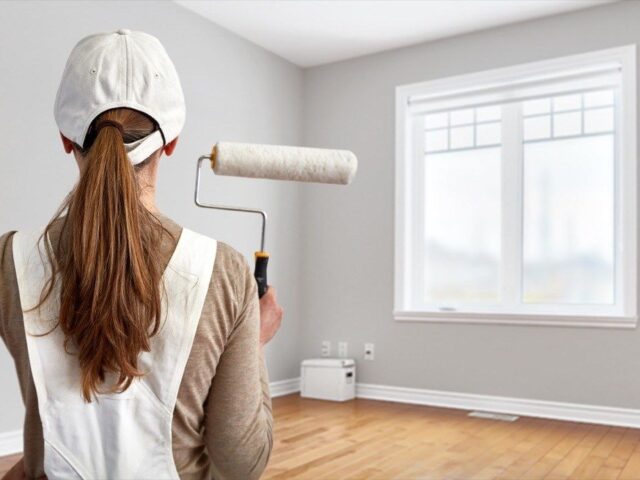High-Quality Lakewood Interior Painting to Enhance the Beauty of Your Space
High-Quality Lakewood Interior Painting to Enhance the Beauty of Your Space
Blog Article
Enhance Your Inside Layout With Comprehensive Color Appointment
The combination of color assessment right into indoor layout provides a special chance to fine-tune and elevate the psychological and aesthetic resonance of an area. By engaging with an experienced color specialist, you can navigate the intricacies of color selection, ensuring that your choices not just enhance architectural features however likewise resonate with individual style and mental influence.
Advantages of Color Consultation

In addition, color examination aids in optimizing all-natural light and maximizing spatial perception. Lighter colors can make a space appear more expansive, while darker tones create an intimate setting. Cleveland Metro Painting Specialists. This calculated application of shade can significantly influence the overall atmosphere of any kind of indoor space
Additionally, professional consultants possess a thorough understanding of current trends and ageless classics, guaranteeing that the picked colors will certainly continue to be enticing in time. This insight can save clients from expensive redesigns in the future. Shade examination encourages customers by offering them with a clear vision and direction, promoting self-confidence in their layout choices and ultimately leading to an extra enjoyable and effective indoor layout result.
Understanding Shade Psychology
The relevance of color psychology in indoor design can not be overstated, as it explores the psychological and psychological impacts that various hues can stimulate in individuals. Shades can influence state of mind, habits, and even efficiency, making them a crucial consideration in any layout job.
As an example, warm shades such as red, orange, and yellow are usually connected with power and warmth. They can boost feelings of enjoyment and comfort, making them appropriate for social spaces like living areas or kitchens. Alternatively, great colors like blue, environment-friendly, and purple have a tendency to evoke calmness and peace, making them optimal for bed rooms or reflection areas.
In addition, making use of neutral tones can develop a balanced atmosphere by allowing the bolder shades to stand apart without frustrating the senses. Comprehending these emotional impacts allows developers to produce rooms that not only look visually pleasing yet also promote psychological wellness.
Incorporating color psychology into interior decoration involves a thoughtful choice of tones customized to the intended function of each area, ultimately improving the overall experience for its passengers. This awareness is crucial for accomplishing a unified and practical indoor setting.
The Color Wheel Explained
Understanding the connections in between shades is crucial for reliable interior decoration, and the shade wheel acts as a useful device in this procedure. The shade wheel, established by Isaac Newton in the 17th century, highlights the range of shades prepared in a round style. It makes up primaries-- red, blue, and yellow-- that can not be produced by mixing other shades. Second shades, formed by combining primary colors, include environment-friendly, orange, and purple. Tertiary shades result from mixing a key and a second color, causing tones such as red-orange and green.
The color wheel aids designers grasp the connections in between shades, including corresponding, similar, and triadic plans. Complementary shades, positioned contrary each other on the wheel, create vibrant contrasts that can invigorate an area.
Utilizing the color wheel in interior decoration not just enhances visual allure however additionally evokes details emotions and ambiences, making it an essential referral for shade assessment. Recognizing these relationships eventually encourages designers to produce areas that are both aesthetically captivating and useful.
Picking the Right Palette
A well-chosen color plan can merge a room, enhance its functions, and stimulate desired emotions. Various areas serve different functions view it now and call for schemes that show their desired use; for instance, serene shades such as soft blues or greens work well in bedrooms, advertising relaxation.
Next, consider the all-natural light readily available. Light can considerably change exactly how colors appear, so it is essential to assess the area at various times of the day. Furthermore, think about existing architectural components and furnishings. A harmonious combination ought to complement these features, developing a natural appearance throughout the area.
When choosing shades, use the 60-30-10 guideline, which suggests that 60% of the area should be a leading color, 30% an additional color, and 10% an accent shade. This ratio makes certain balance and aesthetic rate of interest (Cleveland Metro Painting Specialists). Example colors on the wall surfaces before dedicating, as this allows you to see just how the shades connect with one another and the general setting they create in your indoor layout project.
Dealing With a Color Professional

When dealing with a color consultant, the process usually begins with a preliminary appointment. Throughout this conference, you'll review your vision, choices, and the existing aspects in your here area. The expert will certainly examine your requirements and might suggest particular color palettes that align with your goals.
After developing an instructions, the consultant will provide examples and aesthetic help to assist you visualize the recommended color schemes. This step is essential, as shades can appear differently under varying lighting problems.
Furthermore, a shade expert can assist you in choosing corresponding home furnishings, art work, and devices to balance with your chosen scheme. By collaborating closely, you can attain a polished aesthetic that boosts your insides and creates a welcoming environment. Ultimately, the know-how of a color consultant can significantly boost the total effect of your design project.
Verdict
In summary, thorough shade assessment offers as an important device for enhancing interior layout. By leveraging expert understanding of shade psychology and spatial dynamics, a customized shade palette can be created to evoke specific emotions and develop a harmonious atmosphere.
By involving with an experienced shade specialist, you can browse the complexities of shade selection, making sure that here are the findings your choices not just complement architectural features but likewise resonate with personal design and emotional influence. It comprises key colors-- red, blue, and yellow-- that can not be produced by blending various other shades.The shade wheel helps designers comprehend the partnerships in between colors, consisting of corresponding, similar, and triadic systems.When selecting colors, utilize the 60-30-10 rule, which suggests that 60% of the room need to be a leading shade, 30% an additional color, and 10% an accent shade. By leveraging professional understanding of color psychology and spatial dynamics, a customized shade scheme can be created to stimulate particular emotions and create a harmonious environment.
Report this page